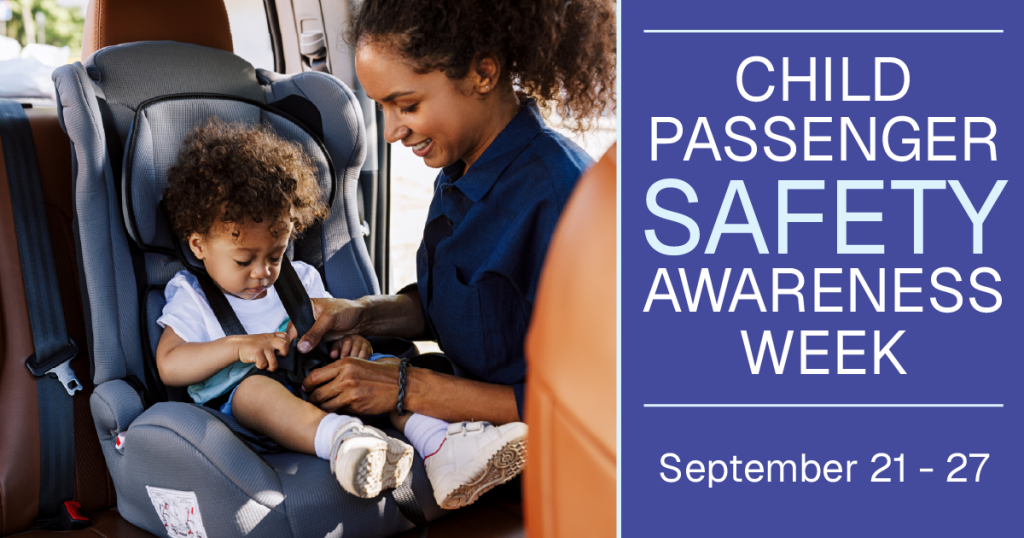Child Passenger Safety Week

This week, we recognize Child Passenger Safety Week to raise awareness on how we can keep our children safe in vehicles.
One of the most important things you can do to ensure proper protection, is to make sure your child is in the right seat for their age and size. You can use the National Highway Traffic Safety Administration (NHTSA)’s Car Seat Finder to verify that your child is the right seat. With so many available options on the market, selecting the right car seat can feel daunting. Also, there are many things to consider when making the choice, such as your child’s age and size, the room you have in your vehicle and manufacturer height and weight requirements. Learn more about the four types of car seats.
NHTSA recommends children ride in the back seat at least through age 12. Children under the age of 12 months should always ride in a rear-facing car seat and it’s best to keep your child in a rear-facing seat as long as possible. This is because a rear-facing car seat has a harness and will move with your child in a crash, which reduces stress to the neck and spinal cord. Children can travel in a forward-facing car seat with a harness and tether once they outgrow the rear-facing seat, up to age seven. Once your child reaches the top height or weight limit for their forward-facing car seat, it’s time to travel in a booster seat. Children should remain in a booster seat until they are big enough to fit in a seat belt properly: the lap belt lies snugly across the upper thighs and the shoulder belt lies snugly across the shoulder and chest. For a more detailed breakdown, check out NHTSA’s car seat recommendations.
This Saturday, September 27 is National Seat Check Saturday. If you would like some extra support on how to correctly install and use the right car seat, you can also use NHTSA’s Car Seat Inspection locator to find a location near you and receive free instruction and support with your child’s car seat .
Keep your child safe and stay informed on the best practices and recommendations for passenger safety. Register your car seat to receive safety updates and recall notices.

